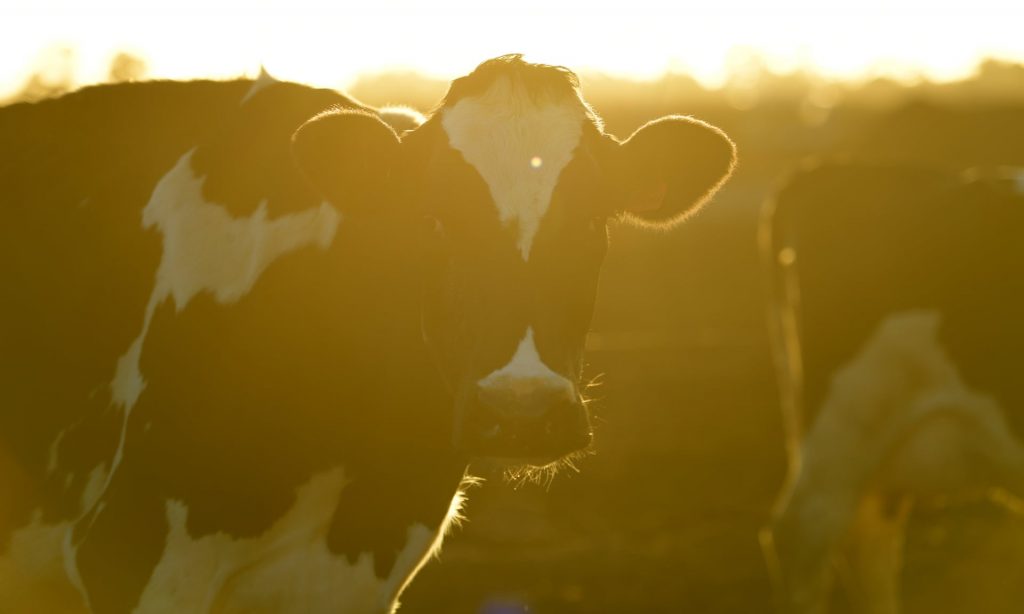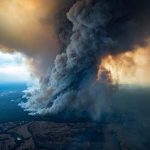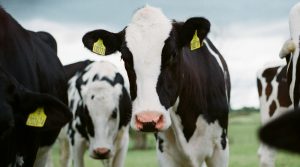
Dairy farmers were racing to shore up supplies of fodder and fuel on Friday as they prepared for a hot weekend that could see the return of fires that have already ravaged much of Australia’s east coast.
Two key dairy areas, East Gippsland in Victoria and the New South Wales south coast, were heavily burned during fires over the new year, adding to the woes of an industry already suffering from a crippling drought and persistently low milk prices.
Supermarkets say the fire crisis has not curbed the supply of fresh milk but the head of NSW farmers’ body Dairy Connect, Shaughn Morgan, said it could do so if it continued.
“It could have an impact, depending on the amount of milk that’s not collected,” he said.
He said it was hard to get information but the fires were “impacting quite heavily on the south coast from Nowra down”.
“These guys aren’t able to get the milk from their farms, they’re spilling their milk,” he said. “We’re very grateful to the processors, who are continuing to pay the farmers.”
He said he hoped the declaration of a state of emergency by the state government on Thursday would allow roads to open and farmers to bring in fodder.
“If there’s no fodder to feed them [the cows],” he said. “It raises serious questions about the viability of their farms.
“Saturday’s a real concern because it is another flashpoint – it’s going to be something that we need to monitor really closely.
“The people down there are at their wit’s end and have been under enormous pressure for days.”
The president of the United Dairyfarmers of Victoria, Paul Mumford, said there had been reports of pasture damage and some stock losses in East Gippsland and up into the state’s north-east, but information was “still reasonably sketchy coming out of both areas”.
“The big problem farmers are having is fire damage not only to pastures but infrastructure – but more importantly getting services back on to the farm.”
He said farmers needed fodder to feed their cows, and fuel to power milking equipment.
“The cows have to be fed and the cows also have to be milked,” he said. “Some farms may not have been able to milk their cows since the fire went through their district.
“Because tomorrow and Sunday are going to be such problem days for heat, from what I understand today no fodder or services will be allowed in or out of those districts until the worst of the danger has passed.”
Max Roberts, the chairman of milk processor Bega, said it had been difficult to collect milk.
“If they’re not on fire, we can’t get to them,” he said. “There’ve been a number of farms that haven’t milked for up to 50 hours, 60 hours, and that’s an issue for cow health.”
He said the company was working on getting fodder and diesel to farms, while emergency services were helping to get milk tankers out to dairy farms.
“It’s highly unusual to get a milk tanker turning up with a police escort but that’s what’s happening.”
He was “not sure” how much it was costing Bega to pay for milk it could not collect.
“It’d be a bigger cost if the farm went broke,” he said. “You take a longer-term view on these things.”
Production at the company’s factory in Bega will grind to a standstill over the weekend.
“The factory will close down all but a skeleton operation all through Saturday and Sunday to allow people to stay home and look after themselves,” Roberts said. “There will be milk tanker pickups but again the instruction is that, if it isn’t safe to do it, don’t.”
Steve Guthrey, a former dairy farmer who now grows fodder and agists livestock at his property near Bega, said the community was bracing for the weekend.
“Pretty much everybody’s just watching and waiting for the moment,” he said. “We know we’ve got a pretty serious day tomorrow.
“We’re all on tenterhooks, preparing our houses and farms as best we can.”
He said he feared fires to the north-east and north-west could join together.
“We haven’t gotten any aircraft down here to help us,” he said. “A lot of the vehicles down here are really limited in what they can do.
“We’ve run out of irrigation water now. The dams are virtually empty … We’ve still got a long summer ahead of us now.”
























